X-aspirations
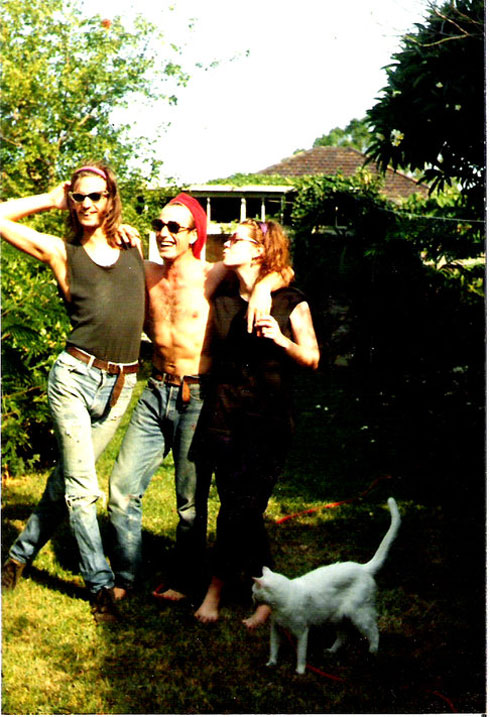
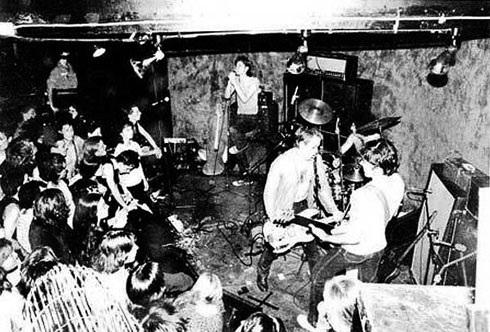
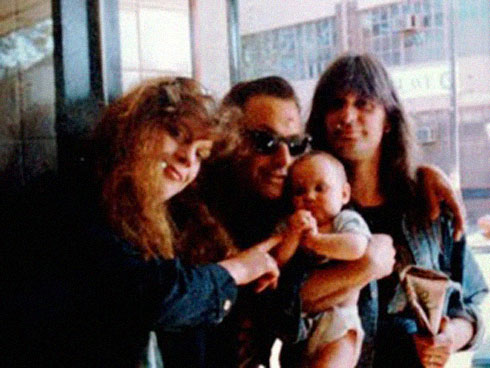
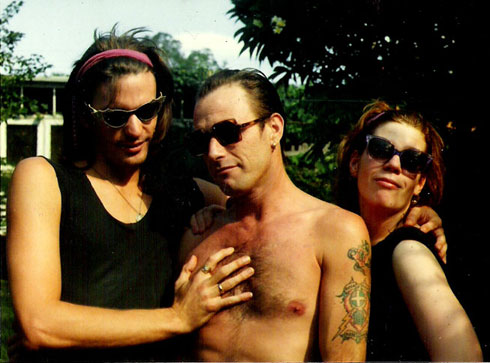
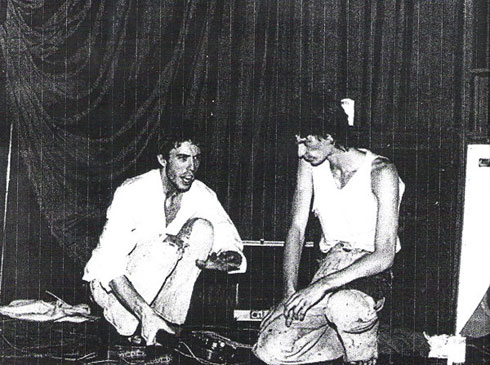
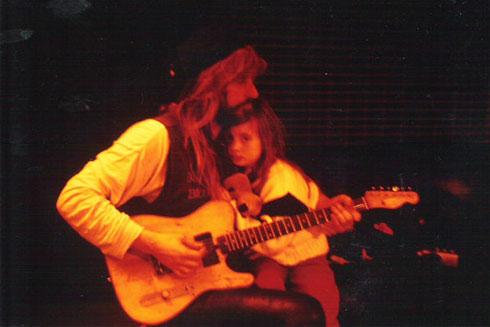
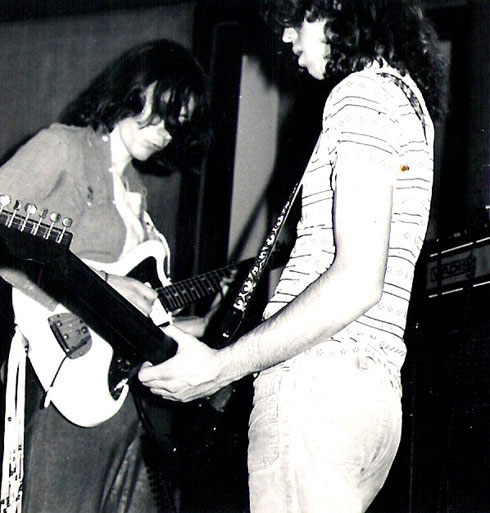
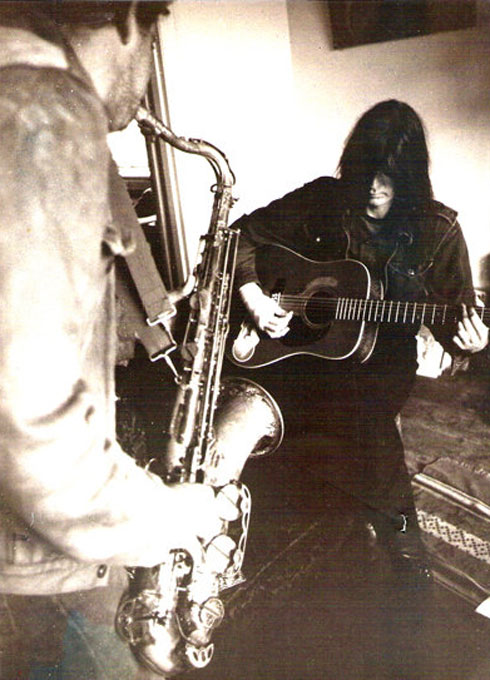 Text: Madelaine Lucas Images: Steve Lucas
Text: Madelaine Lucas Images: Steve Lucas
X have shaken and shattered Australian underground crowds with raw and uncompromising punk music since 1977. With several line-up changes and resurrections, the legend of X has been carved into Australian underground music history.
To me, it’s a legend that is very close to home.
At an X gig in 2009, a punter approached my friend and I. With sadness in his voice, he said: “I wish you kids could’ve seen them back then! You’ll never know what it was like.”
“That’s my dad,” I replied. “I’ve been watching this my whole life. You’ll never know what that was like.”
Steve Lucas has fronted X for 33 years, shredding vocals in a way that he describes as primal screaming, “but in-tune.” However, this same voice was the one that sung me to sleep every night (for sometimes 40 minutes, I’m told) with the songs of Frank Sinatra, the Beatles and the soundtrack from The Wizard of Oz. As a father, this same man taught me that in art – and in all things – to follow the three pillars of love, honesty and respect.
In the case of X, hardcore still has heart and soul.
Last month, following a successful tour of America, X played their final show in Sydney. I took this chance to ask my father the things I never thought to when I was growing up. And I’m glad that I did because although X might not belong to my generation, I am proud I can say that a part of it is in my blood.
Madelaine Lucas: Hey dad, how are you today?
Steve Lucas: I am as well as can be, my darling, thank you for asking.
ML: X recently performed for the last time, indefinitely. Do you feel a sense of closure, or is there a chance you’ll end up playing as X again?
SL: There is an old saying: ‘Never say never’. I finished that night and, as soon as I cooled off, thought of how much fun it would be to do another one, which we did. We had a sneaky other last gig up our sleeves in Maitland in a pub called the Junkyard. No stage; we just set up on the floor with a little vocal PA and belted out the songs just like 1977. That was the true closing.
Through the ’90s, we did an endless run of ‘last ever’ gigs. We meant it every time, but someone would always come up with a wad of money that you just couldn’t say ‘no’ to. I can say ‘no’ now. At other times, we just missed it. We missed the mayhem and rapture, the pleasure and the pain. We missed the whole crazy circus of being in X and just had to do it again.
ML: X have played on-and-off for 33 years. What is it about X that keeps you returning to those songs?
SL: It is simple, really. I love the music and I love the songs. The members, living and deceased, were people I loved – and at times hated. But that’s life. From the age of 19 to the age of 53 is a long time and you grow fond of things. You miss the ‘glory days,’ you miss the songs. They’re like your children; you miss them and want them to come over and visit for a while.
Playing the music kept the spirits of those I lost along the way alive. It kept their thoughts, expressions and their art alive. X was the soundtrack to most of my life.
ML: What do you think it is about those songs that keep audiences needing to hear them?
SL: Memories, love, sentimentality – ironic in a punk sense – and the fact we didn’t grow old musically. We didn’t get all mature and start trying to intellectualise what we did. It was simple, melodic and timeless.
The audience owned the songs as much as we did. I think that is the most crucial point to the whole X story. We were a people’s band, not the industry’s. Those that were there at the beginning know of the love and the passion. They saw the blood on the floor. They met, fell in love and got married at X gigs. No matter what disaster confronted it, we stepped up to it, spat in its eye and played our hearts out. You cannot fake what we did.
ML: Has the way you play the songs changed since you began X?
SL: I was a lot more angry at the age of 19. More rebellious, more everything. Now I’m a bit more… forgiving, shall we say. At its greatest, X was almost performance art. The sheer physicality alone was enough to witness, let alone the bleeding, the blisters and gashes from hitting the guitar instead of the strings. These days, I have a better voice and can definitely play guitar better – but as time goes on you lose things and find things. Perspective changes. Life is change.
ML: Was there a clear moment when you thought, ‘I want to play music for the rest of my life’?
SL: No, not really. I may have said it out loud once or twice but, in reality, I was already doing it. I loved singing for as long as I can remember. My sister and I would be sent to alternating grandparents by cabs on the weekends. I would sing to the taxi driver the whole way, if he’d let me. I would sing to anyone. I sang to myself but I never thought that I would make a living or career out of it.
I do remember, as a kid, organising the girls in the street to chase me and a couple of mates up and down the street. The game was, we were the Beatles and the girls had to run after us and try to catch us and kiss us. Parents soon put a stop to that, but at that time I thought it would be fun to grow up and be in a band! But it was just a fantasy. The rest was an accident that lasted 33 years.
ML: Lots of bands of X’s generation gave up, or sold out, but X stayed forever underground. I know you’ve seen the dark side of the music industry – how did you deal with this, and keep going?
SL: There was no alternative. Stubborn pride perhaps. After a while, you learn to accept that you will be ripped off, betrayed, used and abused by a bunch of people who could not give a shit about you. When that happens you either stand tall or fall. We did both. There were plenty of times we had to pick ourselves up out of the gutter and start again. But that binds you. You become brothers and sisters. You become family – then a movement and a threat! So then they beat you down again. But you gain strength every time you stood up and took another blow. [Because of this] X was the most passionate band in the country at the time.
ML: Your last show in Sydney had this beautiful energy, which I feel was more about the crowd loving the music and needing it, than any rock n’ roll ego. Do you think that X managed to tap into the collective emotion of a generation?
SL: Whether we tapped into something or something tapped into us, I really can’t say. But there has always been a bond – at times fanatic, but an unbreakable solid bond. We [X and the audience] were the flotsam and jetsam of our generation. We found each other, recognized each other for what we were, and ultimately accepted that we belonged to each other. That is how it feels now, looking back. We were in love… all of us, with each other, on a very subconscious level at times, perhaps, but definitely in a sub-cultural sense!
ML: On hiatus from X, do you have plans to work on your other music projects? In 1992, you wrote an incredible country album. Do you think you’ll ever return to this sound?
SL: In truth, I never left it. All my solo shows are built around it and when I do Empty Horses gigs I try to return to that style of playing. It is more a natural part of me as a musician than the hardcore rock ‘n’ roll side of me. It’s how I play at home when there is no one around. It is a kind of Jekyll and Hyde relationship that I have with myself.
ML: Any last words as the voice box of X?
SL: Someone asked me once, “What’s the secret to X’s success?” I replied, “The total lack of it.”
X
Next story: Kind Of Like This – Cara Stricker
The November issue of The Blackmail proudly supports Movember



